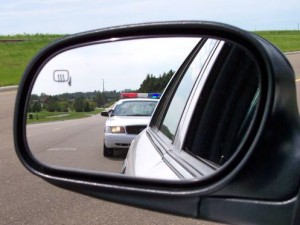By, Cynthia Lindner, MS
clinicalhypnotism.com (631) 473-0405
Why do people seek out a Professional Counselor or Hypnotherapist for help? There are many reasons a person may seek help. Some people would like to understand themselves better, while other may have a particular issue or self-defeating behaviors they want to address. Perhaps change is needed because the behavior is harming their health, interfering with their relationships with loved ones, or making it difficult to hold down a job.
 The list of self-defeating behaviors is endless. People want to stop smoking, and abusing other substances. They want to stop eating “junk food”, become a healthy weight and exercise more. They want to have fewer arguments and have more productive discussions with family, friends and coworkers. Many desire to get their anger, anxiety, procrastination and controlling behavior transformed to calm optimism, so they find someone to help them make a positive change.
The list of self-defeating behaviors is endless. People want to stop smoking, and abusing other substances. They want to stop eating “junk food”, become a healthy weight and exercise more. They want to have fewer arguments and have more productive discussions with family, friends and coworkers. Many desire to get their anger, anxiety, procrastination and controlling behavior transformed to calm optimism, so they find someone to help them make a positive change.
Making life changes is easy for some people and a daunting task for others. Sometimes people have some success, but after a while they relapse back into their old patterns. Perhaps they weren’t ready to make the change in the first place.
Research has identified six major stages in the change process, as discussed in Changing For Good by Prochaska, Norcros and DiClemente.
First, is the Precontemplation Stage, this is when other people such as family and professionals can see there is a problem the person with the problem fails to see it and feels no need to make a change. They may agree to work on an issue because of external influence, or they want to quiet the nagging, but they are prone to returning to the behavior once the pressure is off.
Moving into the Contemplation Stage the troubled person is tired of feeling stuck in life with the self-defeating behavior, and can admit there is a problem, though they may not yet be willing to change it, still preferring the familiar. It is during this stage that people begin to define their own goals.
There is a Preparation Stage– There is an awareness of the problem issue, a person makes plans and gets ready to do the work of making a change happen. There is typically an increase in motivation, and a person may make the commitment to change public, such telling friends that a new diet will start in a week and asking them to not tempt them with baked goods, for example.
The Action Stage is the stage that is most visible to others. Since changes are truly being made, a therapist can shift the focus to learning new strategies to maintain the changes over time.
Which brings us to the Maintenance Stage. It is a time to make the changes that have taken place and make them part of everyday life. You may think of the term lifestyle change taking place of the word diet.
There is the Termination Stage when the lifestyle change has become the natural behavior and there is no longer a battle with one’s self over having a smoke, a drink or overeating. It feels like temptations are no longer a concern, and the person can live their life with out fear that a relapse will occur.
A skillful therapist can be a helpful partner through all of these stages by examining why change may be difficult and finding solutions to those obstacles to change, and help the person stay the course by working through the difficulties. I would also like to mention that a person may not just move through these stages sequentially. A person may advance to Preparation, and the find themselves back at the Contemplation Stage.


